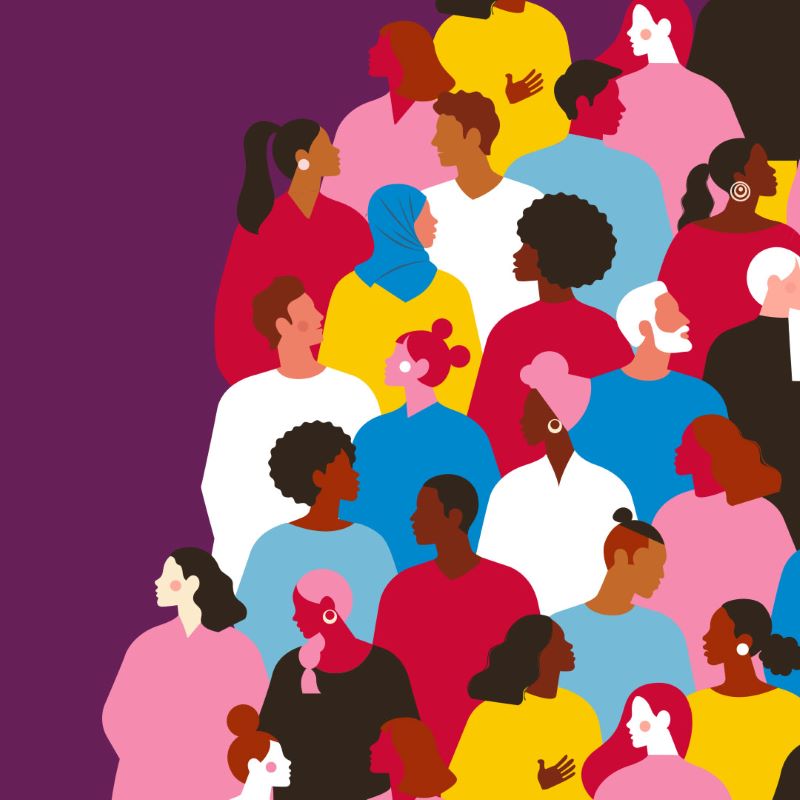
Equality is generally considered a matter of fundamental rights. However, in our daily life we frequently notice that not everyone is included in our social interactions as an equal.
Often those who create situations of exclusion see themselves as committed to equality and fairness and do not consider themselves biased.
The concept of implicit bias has been used to explain why inequalities endure despite people’s conscious commitment to equality. The philosophical concept of “epistemic injustice” interprets implicit bias not just as an unfortunate psychological phenomenon but as a problem where the social construction of knowledge and questions of justice intersect.
Miranda Fricker proposed the concept of epistemic injustice in her book Epistemic Injustice: Power and the Ethics of Knowing (2009). In this book she presents epistemic injustice as a concept that can help us understand the persistence of bias, with particular attention to its impact on our shared social knowledge. She presents the concepts of testimonial injustice and hermeneutic injustice as distinct but interrelated problems that have pernicious exclusionary effects and thereby significantly impact on our shared social knowledge.
Testimonial injustice occurs when members of certain groups are not taken seriously as “knowers”, when what they express as their knowledge is discounted as flawed and inaccurate not due to internal contradiction or countervailing evidence but simply due to who they are.
You may remember Elisabeth Warren’s response to the question whether she thought sexism played a role during her run as US presidential candidate in 2020: “Gender in this race, you know, that is the trap question for every woman. If you say, yeah, there was sexism in this race, everyone says, whiner! And if you say, no, there was no sexism, about a bazillion women think ‘What planet do you live on?'”
What Warren is pointing to is the understanding shared by many women that they frequently encounter greater hurdles in being judged professionally on their own merits than males, but that expressing this experience is generally not considered a reliable testimony, regardless of supporting evidence.
Instead of being recognised as an expression that deserves to be heard and taken seriously, it is interpreted merely as a sign of being a sore loser or being weak and emotional.
Gender bias is only one bias of many; members of a wide range of different groups encounter comparable epistemic disadvantage. Fricker gives the example of Tom Robinson in the novel To Kill a Mockingbird, a Black man who was accused of raping a white woman, Mayella Ewell. When he stated in his court testimony how his harmless interactions with Mayella were motivated by sympathy and pity, this testimony was simply not considered believable, despite supporting evidence. It appeared inconceivable to the judge and jury due to the pervasive social hierarchies and Tom’s social position in them.
In the health care setting, prior to the more widespread emergence of long Covid, sufferers of chronic fatigue syndrome similarly encountered problems in having their reports of their puzzling symptoms being taken seriously by their doctors. Despite evidence of the existence of a complex but coherent syndrome, their testimony about their symptoms was often disregarded and reinterpreted as evidence of mental health difficulties instead.
While in testimonial injustice, the knower has a clear sense of their knowledge but encounters disbelief when expressing this knowledge, in hermeneutic injustice the lack of societal attention to certain phenomena goes one step further.
Persons may be left unable to even make sense of their experience because society has not developed relevant conceptual resources to capture that experience accurately. The absence of such concepts is even more deeply disempowering, insofar as they may be left with a deep sense of unease, suffering and anger, but struggle to find a description that captures its meaning in an understandable way.
The fact that there is no social attention to this phenomenon is likely to be closely related to testimonial injustice: those groups whose testimony is discounted even if they express it with clarity and solid evidence, are also likely to find themselves less supported in getting heard and being taken seriously when trying to make sense of their experiences, especially if clarifying this experience would not be to the advantage of those in power.
Fricker illustrates hermeneutic injustice with the example of the concept of sexual harassment. In the absence of a shared social understanding that unwanted sexual advances in work contexts constitute sexual harassment, a woman who is sexually harassed by her boss may be told that she should understand this as just harmless flirtation.
The power of socially shared conceptualisations is such that she may struggle to explain not just to others but even to herself why she isn’t flattered but left feeling disrespected, off-balance or even afraid.

Similarly, in the absence of the concept of bullying, a bullied school child will experience the emotional impact of the cruelty from their interaction with bullies but may not have the conceptual resources to clearly understand and express their experience. Instead, they might have been socially reinforced in believing that what happened to them should be understood as “teasing”, and the appropriate response was for them grow a thicker skin, not for the bullying to stop.
More generally, the notion of micro-aggression may allow members of marginalised groups to conceptualise why minor dismissive comments or mildly disrespectful interactions can take such a toll on them in the social contexts in which they occur.
Rather than trying to convince themselves that they are emotionally over-reacting, that words are just words, and that they should not be angry at those who may just be socially clumsy, the concept of micro-aggression may allow the recipients to see why these comments and interactions are problematic.
In all these cases, when hermeneutic injustice is addressed and a concept becomes more widely adopted within society, this does not just help those affected to make sense of their emotional response but also opens up their experience as meaningful for others, and thereby gives additional legitimacy to their attempts to address these concerns.
Testimonial and hermeneutic injustices come not just with a social cost, but with a potentially significant epistemic cost for society as a whole.
If the knowledge of certain groups is excluded from social decision-making processes, our understanding of social realities becomes flawed.
If valuable insights by members of non-mainstream groups are not heard by those in power, our knowledge about the world becomes impoverished, ultimately making us less able to navigate emerging challenges.